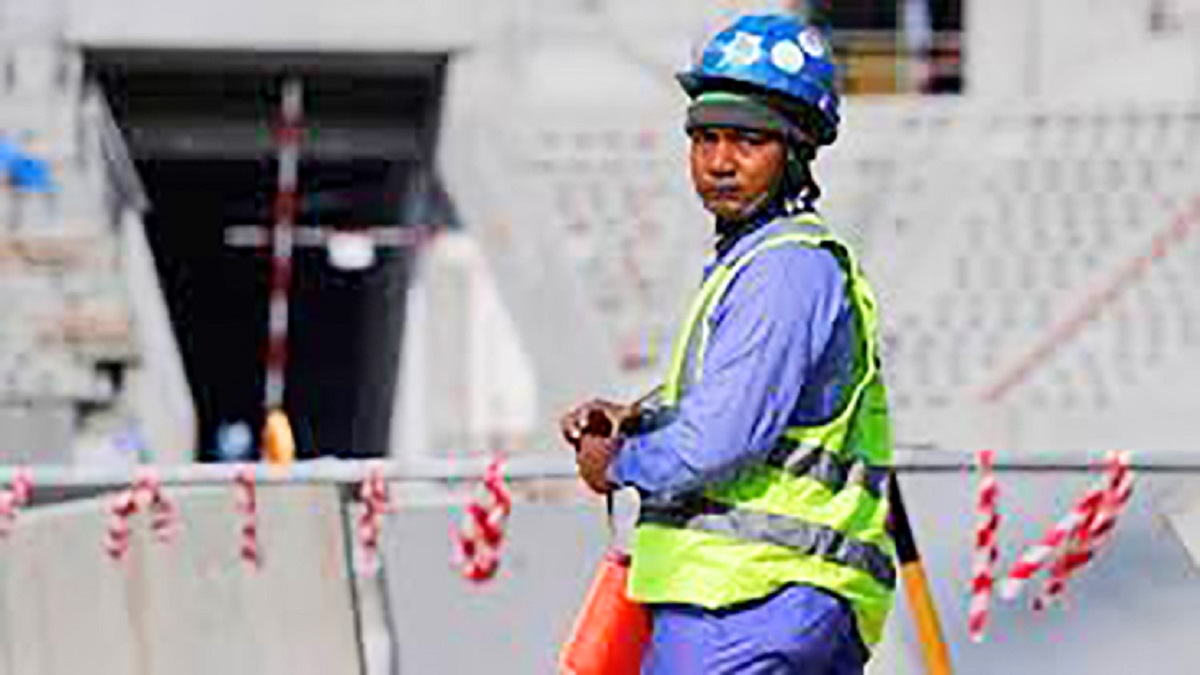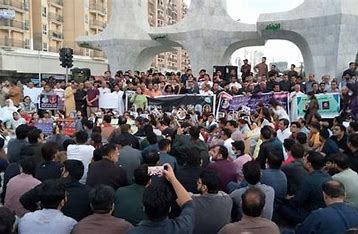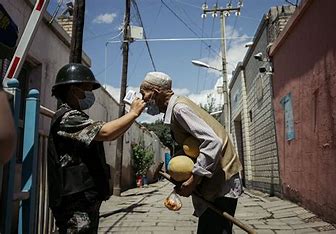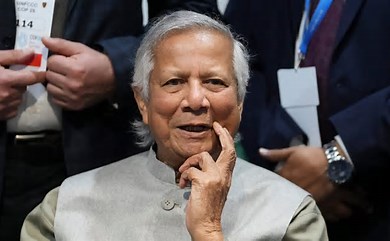
It was a sight nobody had bargained for while dealing with Covid-19. A few days into the lockdown, the mass migration of workers began and soon became a humanitarian crisis of proportions many of us haven’t seen in our respective lifetimes. Men, women, children marching on even when the prospect of reaching their destination was impossible but the spirit was superhuman. It was a common sight across the country. We met a group of 30 people, including seven to eight children, in the 2-4 age group, eight to nine women and elders with their luggage on their heads. They were walking on NH24 in Uttar Pradesh’s Ghaziabad and headed home to Madhya Pradesh. Ramesh, a resident of Damoh in MP, said they are walking home on foot as they didn’t have money. He used to work as a repairman in Sonipat, Haryana, but he has been forced to leave as he hasn’t worked a single day post 25 March.
Despair writ large on his face, evidence of his worry for the children and older members with him. When asked how long would it take to reach their homes in Madhya Pradesh, he said, “We will reach home in 10 to 15 days if we don’t get any transport. We urge the government to unseal borders so that we can move peacefully.” The migrants’ vulnerability amidst the nationwide lockdown is palpable. Despite special train and bus facilities, the labourers are walking or travelling through trucks which is also costing them a huge sum. We met another group under the Akshardham flyover in Delhi, who were travelling from Haryana to Jhansi by foot. They started walking around 3pm on Thursday after being thrown out of their houses for not being able to pay their rent. They showed documentary proof of their registration for travel across states. But they have not received any confirmation regarding special bus/ train facility till now.
“We walked for days and nights with only two hours of rest. We have not received any help regarding transportation facilities after contacting the authorities repeatedly. So we started walking,” said Anil, a carpenter who has been in Delhi for the last seven years. Most migrant workers had torn shoes and injured feet due to the diatnces they had walked. To add to their misery, they hadn’t eaten for several hours. Exhausted they are finding it difficult to carry on but the desperation to reach home is getting them back on their feet. “The landlords asked us to pay rent, we are not going to work so we did not have any means to pay the rent or even buy food. They kicked us out of their houses and even the sarpanch could not help us travel back to our homes,” said Praveen, another worker. Satish, in his late 40s, was visibly upset. “How could the government think that we will be able to book train tickets? We don’t have a smartphone and we don’t know how to use Internet, we have no other option left.
So, we decided to walk to our home district.” The government has run several special trains to take migrant workers home but the politics and, more often, the lack of understanding, has put a spanner in it. A majority of migrant workers we spoke to said the government must also make ticket booking and transport by buses more easily accessible to them. But instead the Centre and the states squabbled over who will foot the bill and whether sufficient trains have been requisitioned. This, said an angry Satish, is the reason why despite all assurances, you will see thousands and thousands migrant workers marching on or taking refuge in tankers or trucks, often at exorbitant prices. This is the reason why that despite the cost of travelling in private goods carriers being significantly higher than the government-means, the workers are preferring it to avoid the difficulties of online ticket booking. Having a bank account, internet facility and the long wait to receive confirmation are strenuous for the already troubled workers. The choice also comes from the fact that connectivity is an issue during lockdown and these private transporters drop them nearer their final destinations. And while it’s raining one economic package after another, thousands of oblivious migrant labourers are marching home with their families in tow















